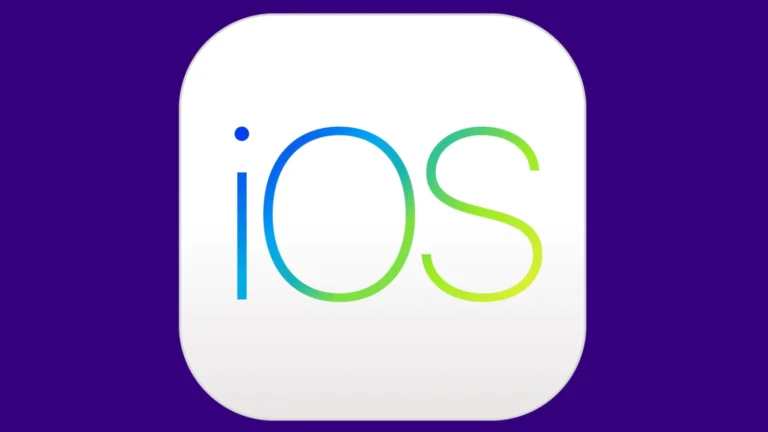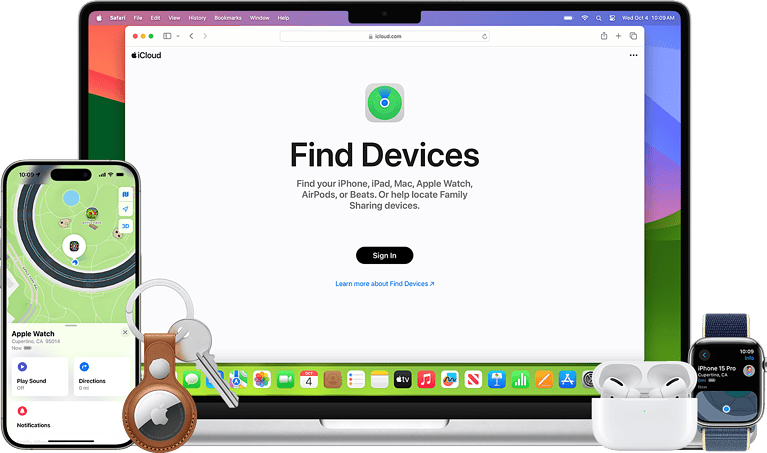
Apple is set to expand its innovative Apple Intelligence system to European Union countries in April 2025. This rollout marks a significant step in Apple’s AI strategy, bringing advanced features to millions of users across the EU. The expansion follows the successful launch of Apple Intelligence in select markets, including the United States.
Apple Intelligence integrates powerful AI capabilities into iPhones, iPads, and Macs, enhancing user experiences across various applications. The system leverages generative models and personal context to deliver tailored, relevant assistance. EU users can expect features like improved Siri interactions, smart photo organization, and context-aware text predictions.
The April 2025 release aligns with Apple’s commitment to meeting EU digital regulations while expanding its AI offerings. This move positions Apple to compete more effectively in the European market, where AI technologies are becoming increasingly important to consumers and businesses alike.
Apple Intelligence: EU Users Will Have to Wait a Little Longer
A Delayed Arrival
While users in regions like the US, Canada, and the UK are already experiencing the power of Apple Intelligence, those in the European Union will have to wait a bit longer. Apple has confirmed that its AI-powered features will launch in the EU in April 2025. This staggered rollout is likely due to Apple’s commitment to complying with the EU’s Digital Markets Act (DMA).
Navigating the DMA
The DMA is a comprehensive piece of legislation aimed at regulating large tech companies and ensuring fair competition in the digital market. It places specific requirements on companies like Apple, particularly regarding data usage and AI implementation. Apple is taking its time to ensure that its AI features fully comply with these regulations before launching them in the EU. This careful approach reflects Apple’s dedication to user privacy and responsible AI development.
A Phased Rollout
Even after the initial launch in April 2025, the rollout of Apple Intelligence in the EU might be gradual. While English, French, and German language support is expected at launch, support for other European languages may follow later in the year. This phased approach allows Apple to fine-tune its AI features for different linguistic and cultural contexts, ensuring a seamless and localized experience for all EU users.
What to Expect
Apple Intelligence promises to revolutionize how users interact with their Apple devices. It brings forth a new era of AI-powered assistance, enhancing productivity and creativity in various ways. Some key features EU users can look forward to include:
- Advanced Siri Capabilities: Siri will become even more intelligent, capable of understanding complex requests, providing personalized recommendations, and automating tasks.
- Intelligent Photo Editing: AI algorithms will assist in enhancing photos, suggesting edits, and even generating creative content.
- AI-Powered Workflows: Apple Intelligence will streamline workflows across different apps and devices, automating repetitive tasks and boosting efficiency.
A Global Expansion
The launch of Apple Intelligence in the EU marks a significant step in Apple’s global AI strategy. It brings these powerful capabilities to a large and diverse user base, further solidifying Apple’s position at the forefront of AI innovation.
Apple Intelligence Rollout Timeline
| Region | Launch Date |
|---|---|
| US, Canada, UK, Australia | Currently Available |
| European Union | April 2025 |
Key Takeaways
- Apple Intelligence will be available to EU users in April 2025
- The system brings AI-powered features to iPhones, iPads, and Macs
- This expansion strengthens Apple’s position in the European tech market
Apple Intelligence Features and Capabilities
Apple Intelligence brings powerful new capabilities to iPhones, iPads, and Macs. The system leverages on-device processing and cloud computing to enhance productivity and user interactions.
Integration with MacOS Sequoia and iOS Ecosystem
Apple Intelligence seamlessly integrates with MacOS Sequoia and iOS 18. The system works across devices, allowing users to start tasks on their iPhone and continue on their Mac. It enhances core apps like Messages, offering smart replies and priority message sorting.
The software update enables new features in Photos, creating personalized memory movies. Siri gets a major upgrade, understanding context better and executing more complex commands. Apple Intelligence also improves system-wide search, making it easier to find files, emails, and contacts.
Privacy Enhancements and Personal Context Considerations
Apple puts privacy at the forefront of Apple Intelligence. The system uses on-device processing for sensitive data, keeping personal information secure. When cloud processing is needed, Apple employs private cloud compute technology to protect user data.
Personal context is a key feature, allowing Apple Intelligence to provide relevant suggestions without compromising privacy. The system learns user preferences over time but gives users control over what information is used. Settings let users opt out of specific features or disable Apple Intelligence entirely.
User Interaction with Siri and ChatGPT
Siri’s capabilities expand with Apple Intelligence, offering more natural conversations. Users can ask follow-up questions and give multi-step commands. The assistant better understands context, making interactions more fluid.
ChatGPT integration brings advanced language processing to Apple devices. Users can have in-depth conversations, get writing assistance, and solve complex problems. The feature works across apps, helping with tasks like email composition and document editing.
Apple Intelligence also improves dictation and transcription. It can accurately transcribe voice memos and convert handwritten notes to text.
Apple’s Product Line Updates
Apple is rolling out significant enhancements across its device lineup. These updates span the latest iPhone models, iPad improvements, and forthcoming software releases for Mac and iOS systems.
The New iPhone 15 Pro Series and iPhone 16
The iPhone 15 Pro and Pro Max showcase cutting-edge features. They boast titanium frames, slimmer bezels, and an Action button replacing the mute switch. The A17 Pro chip powers these devices, offering desktop-level gaming performance.
Apple plans to unveil the iPhone 16 lineup in fall 2025. Rumors suggest larger displays for Pro models and improved cameras across the range. The standard iPhone 16 may inherit some features from the current Pro models.
The iPhone SE is due for a refresh. Analysts predict a 2025 release with a modern design similar to the iPhone XR or 11, featuring Face ID and 5G connectivity.
iPads and the Latest A17 Pro Chip Technology
iPads are getting a performance boost with the A17 Pro chip. This technology, first seen in the iPhone 15 Pro, brings significant speed improvements to the tablet line.
The iPad Pro models are expected to feature OLED displays in early 2025. This upgrade will enhance color accuracy and contrast ratios. A new iPad mini is also in the works, likely to sport an 8.3-inch display and the A16 Bionic chip.
Entry-level iPads may see updates with faster processors and improved cameras. These changes aim to keep the entire iPad range competitive and feature-rich.
Upcoming MacOS Sequoia and iOS Software Updates
MacOS Sequoia (version 15) introduces Apple Intelligence features to Macs. Users can expect enhanced productivity tools and smarter system-wide integrations. The 15.1 update, set for late 2024, will bring these AI features to EU users.
iOS 18.1 is slated for an October 2024 release. It will include the first wave of Apple Intelligence tools for iPhones. These features focus on app summaries, notification management, and text cleanup.
iOS 18.2, planned for early 2025, will expand Apple Intelligence capabilities. It may introduce more advanced AI-driven features across built-in apps and system functions.
Language Support and Accessibility
Apple Intelligence is expanding its language capabilities and accessibility features. These updates aim to make the service more inclusive and user-friendly for a wider range of people.
New Language Options for Siri and Apple Intelligence
Apple plans to add support for several new languages to Siri and Apple Intelligence in 2025. German, Italian, Korean, Portuguese, and Vietnamese will join the list of supported languages. This expansion will allow more users to interact with Apple’s AI tools in their preferred language.
US English remains the primary language for Apple Intelligence. The company is gradually rolling out support for English variants from Australia, Canada, Ireland, New Zealand, South Africa, and the UK. These updates are expected to be available with iOS 18.2 in December 2024.
Accessible Communication Features
Apple Intelligence will introduce new tools to enhance communication accessibility. Writing Tools will help users craft clear and concise messages. Genmoji will create personalized emoji based on text descriptions, making digital communication more expressive for all users.
The redesigned Siri will feature improved language understanding, making voice interactions more natural and accurate. This update will be particularly beneficial for users with speech impairments or those learning a new language.
Image Playground will allow users to edit and create images using natural language commands. This feature can help visually impaired users better understand and interact with visual content.
Market Impact and EU Digital Legislation
Apple’s approach to the European market will change due to new digital laws. The company must balance compliance with innovation as it brings Apple Intelligence to the EU.
Compliance with the European Union’s Digital Markets Act
The Digital Markets Act (DMA) sets new rules for big tech firms in the EU. Apple must follow these rules when launching Apple Intelligence in Europe. The DMA aims to create fairer digital markets. It requires companies to allow more choice and openness on their platforms.
Apple may need to adjust how Apple Intelligence works in the EU. This could include letting users choose different AI assistants. The company might also have to share some data with competitors. These changes could affect how Apple Intelligence functions compared to other regions.
Potential for Market Expansion and Consumer Privacy Initiatives
Apple Intelligence’s EU launch may open new market opportunities. The company could gain users who value privacy-focused AI tools. Apple’s strong privacy stance aligns with EU data protection laws.
The company may introduce new privacy features for EU users. These could include local processing of voice commands to protect IP addresses. Apple might offer beta versions with enhanced privacy options. Tools to reduce interruptions and clean up personal data could be key selling points.
EU consumers may benefit from more AI options due to the DMA. This could drive Apple to innovate faster in the European market.
Frequently Asked Questions
Apple Intelligence brings new AI capabilities to EU users in 2025. This rollout raises questions about features, device compatibility, privacy, and market impact.
What features will Apple Intelligence offer to EU consumers?
Apple Intelligence will provide advanced AI assistance on iPhones, iPads, and Macs. It aims to enhance tasks like text generation, image editing, and voice control. The system will work with existing Apple apps and services.
How will Apple Intelligence integration affect current iOS devices in Europe?
Most recent iOS devices will support Apple Intelligence through a software update. Older models may have limited functionality. The exact hardware requirements are not yet known.
What are the data privacy implications of Apple Intelligence for EU users?
Apple emphasizes privacy in its AI approach. The company plans to use on-device processing and Private Cloud Compute. This setup aims to protect personal information while providing AI features.
Will there be any region-specific capabilities for Apple Intelligence in the EU market?
Apple has not announced EU-specific features. The initial release will support U.S. English. Local language support may come later. EU regulations could influence some functions.
How does Apple Intelligence compare to existing AI assistants on the market?
A full comparison is not possible yet. Apple’s focus on privacy and device integration may set it apart. Its performance against other AI assistants remains to be seen.
What are the anticipated impacts of Apple Intelligence on smart home ecosystems in the EU?
Apple Intelligence could improve smart home control through better voice commands and automation. It may integrate with HomeKit devices. The full impact on EU smart home systems is still unclear.





